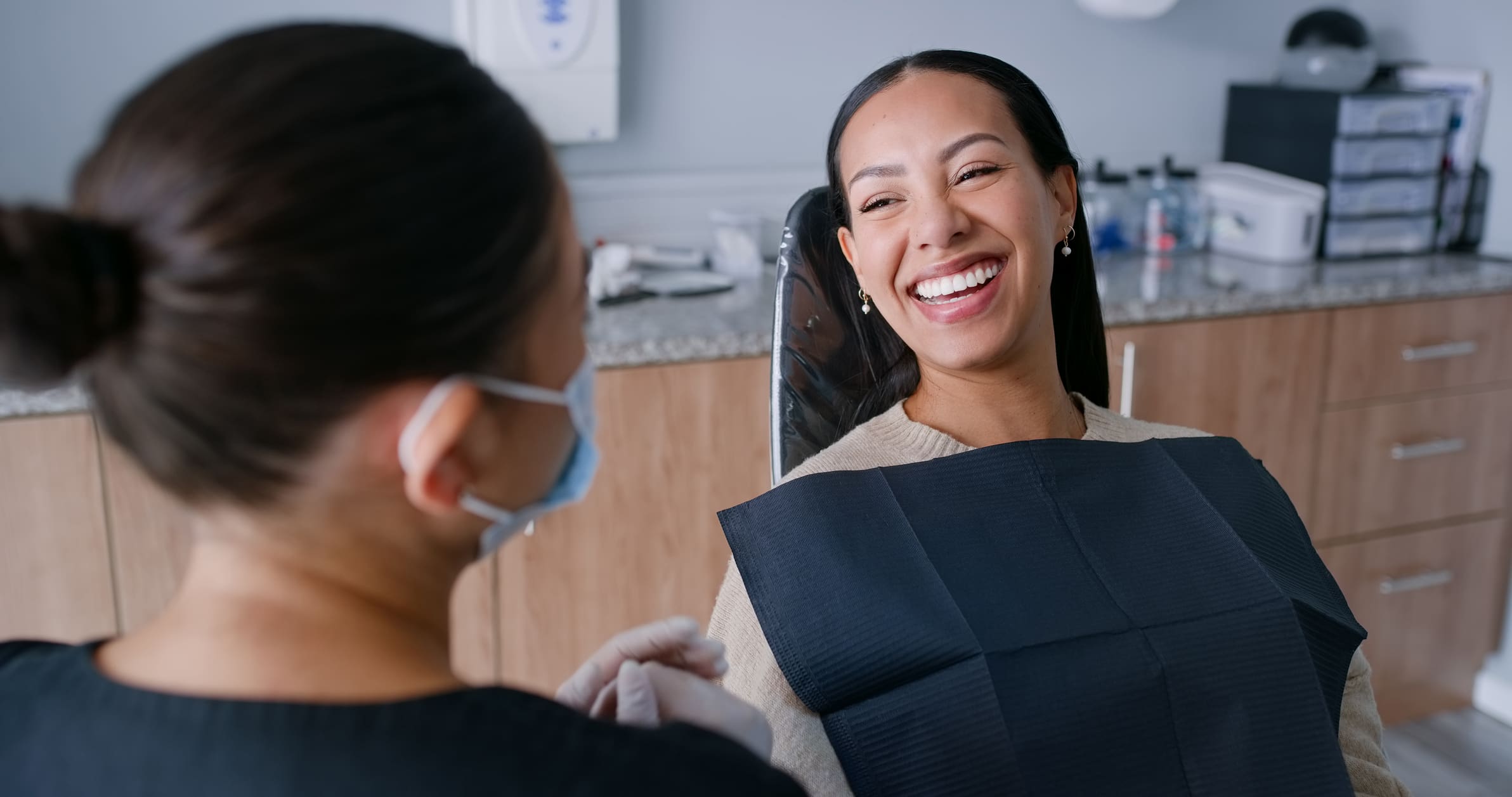Taking good care of your teeth is about more than just having a nice smile. It’s one of the most important parts of keeping your whole body healthy. In fact, research shows that the health of your mouth is directly connected to your overall well-being.
But with so much advice out there, it can feel overwhelming. You might be wondering where to even start. The good news is that it doesn’t have to be complicated. Whether you’re 8 or 80, here are some simple, practical tips that can help everyone in the family maintain a healthier smile.

Top Dental Tips for Every Stage of Life
How You Brush Is Important
Most patients know that brushing your teeth is necessary for the best oral health. However, you may not think about how important it is to examine how you brush your teeth.
Dentists recommend brushing your teeth at least twice a day to effectively prevent plaque from accumulating on your teeth. Plaque is a form of bacteria that sticks to the surfaces of your teeth. Without proper removal, plaque can cause tooth decay and gum disease.
When you brush your teeth, you should brush for at least two minutes. This should allow you enough time to get rid of most of the harmful bacteria on your teeth. Additionally, you should brush the front surface of your teeth with gentle circles. A circular motion is more effective at removing plaque than brushing side-to-side or up and down.
Another way you can add to your oral hygiene is to brush every surface of your mouth. Obviously, you should brush all your teeth. However, you should brush your tongue, inner cheeks, and the roof of your mouth too. You’ll remove more bacteria that way.
Plaque doesn’t only cling to your teeth. It also grows on every surface in your mouth.
Brushing Is Not Enough, Floss!
Brushing your teeth isn’t enough to remove all the harmful bacteria. Flossing is the other necessary step in your oral care routine. Unlike brushing, flossing allows you to reach between your teeth and underneath your gum line. Without flossing, cavities can form hard-to-reach areas and make them more difficult to repair.
Additionally, a lack of flossing can irritate your gums. The plaque will grow under your gum line, which your toothbrush can’t reach. Over time, your gums can become red, swollen, or painful. This is the beginning stage of gum disease.
Include Your Diet
Another way to boost your oral health is to take a look at your diet. You should try to avoid eating high amounts of sugar. The bacteria in your mouth consume the leftover sugar, turning it into acid. Consequently, this acid will destroy your enamel and cause tooth decay.
Instead of eating sweets for a snack, switch to more fibrous fruits and veggies. Vegetables, like celery or carrots, are beneficial for a couple of reasons. They can help remove plaque and stimulate saliva production.
Saliva neutralizes bacterial growth in your mouth. Bacteria essentially thrive in a dry environment, so saliva works to counteract it.
Finally, you should drink plenty of water. Water is the best liquid for your oral and overall health. Water aids saliva production and keeps your mouth healthy. If your mouth is dry, it increases your chances of developing tooth decay.
Don’t Forget to Replace Your Toothbrush
Your toothbrush is your number one tool, but it doesn’t last forever. The bristles become frayed and worn out after a while, which makes them much less effective at cleaning your teeth. A good rule of thumb is to replace your toothbrush every three to four months. You should also replace it sooner if you’ve been sick to avoid putting germs back in your mouth.
Protect Your Teeth During Sports
If you or your kids play sports, a mouthguard is essential. It’s a simple piece of protective plastic that can prevent chipped or knocked-out teeth, cuts to your lips, and even more serious injuries. You can buy a basic one at most stores, your dentist can make a custom mouthguard that’s comfortable and strong for the best fit and protection.
Why Regular Dental Check-Ups Matter
Even if you brush and floss perfectly every day, professional cleanings are still important. Dentists and hygienists have special tools to remove hardened plaque and tartar that you can’t get off at home. These check-ups also allow your dentist to catch small problems early, which makes fixing them easier, cheaper, and less painful.
Watch Out for Sugary Drinks
It’s not just candy that can harm your teeth. Drinks like soda, juice, and sports drinks are often full of sugar and acid. Sipping on them throughout the day constantly bathes your teeth in sugar, giving bacteria more fuel to create cavities. Try to drink these only with meals and choose water as your go-to beverage the rest of the time.
Consider an Antibacterial Mouthwash
While not a replacement for brushing and flossing, using an antibacterial mouthwash can be a helpful addition to your routine. It can reach areas that might be missed, help reduce the overall amount of bacteria in your mouth, and help fight plaque and gingivitis. Look for one that has the American Dental Association (ADA) Seal of Acceptance.
